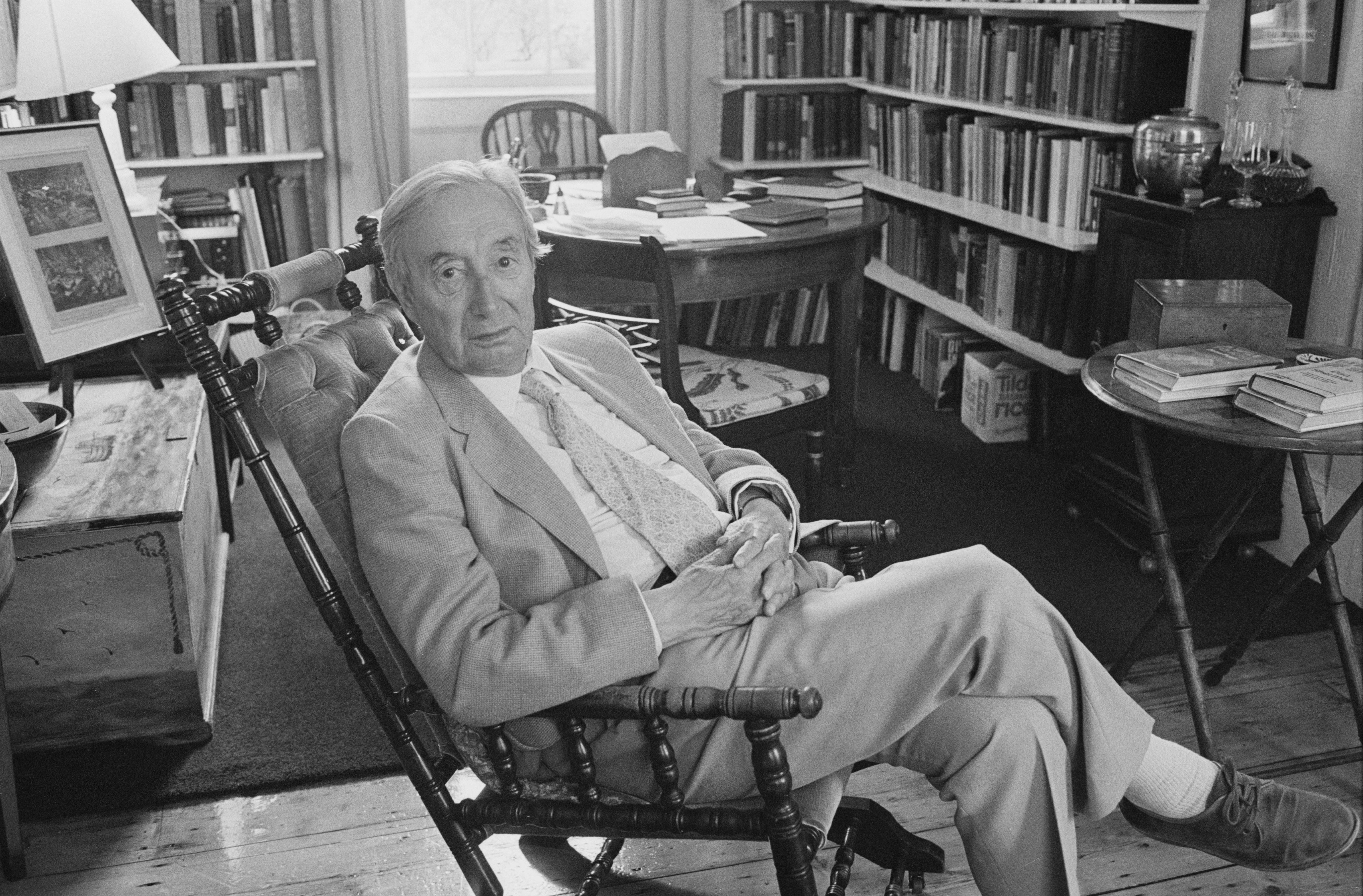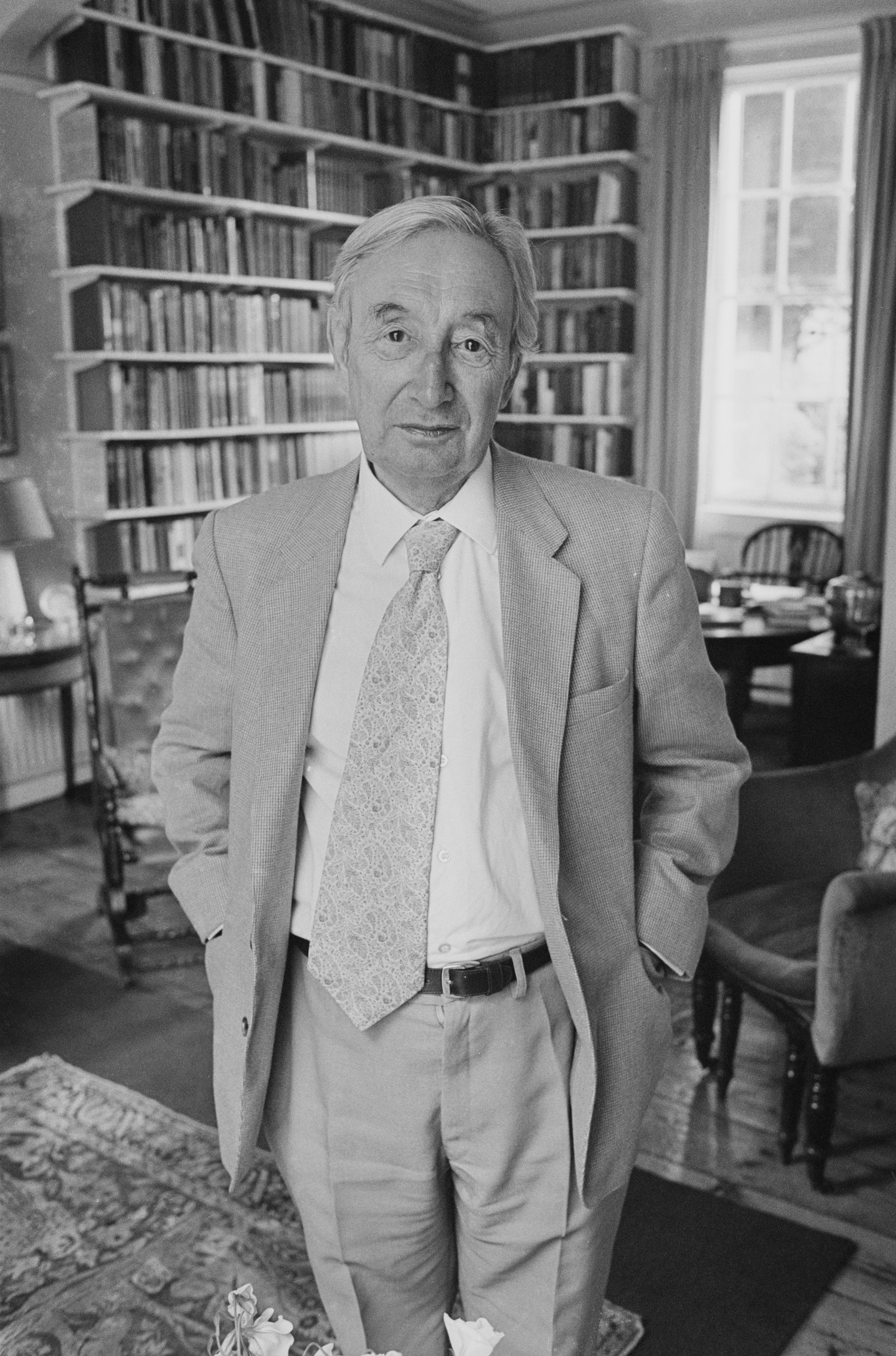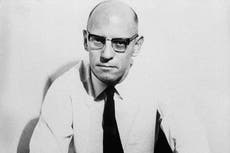Alfred Jules Ayer: Bringing philosophy into the 20th century
Alfred Jules Ayer’s belief in using logical positivism theory to determine the truth of a claim helped carry the tradition of British empiricism into the contemporary era

Alfred Jules Ayer (1910-89) was an empiricist philosopher in the British tradition of Locke, Berkeley and Hume, and did much to popularise logical positivism in the English-speaking world.
There’s an awful lot of universe out there to think about – pick a snail no one’s noticed and you’re off. It is not so easy to be an original philosopher. We’ve had nearly 2,500 years of thinking, undertaken by the brightest people imaginable, on about four questions. Good luck to anyone who dreams of effecting a philosophical paradigm shift. So it’s a little hard to take seriously the hiccoughs which accompany many treatments of AJ Ayer’s philosophy.
It is said that he was a brilliant but unoriginal thinker; he brought the views of others to the English-speaking world; he was a great synthesizer of the thoughts of others. You can be all of these things and still be one of the 20th-century’s greatest philosophers. If nothing else, he carried the tradition of British empiricism, a noble line stretching back to Locke, Berkeley and Hume, into the contemporary era. Perhaps this approach to Ayer’s philosophy is a cure for the hiccoughs. It’s the one adopted here.
Ayer was born in London to Jules Ayer, who came to England from Switzerland when he was 17, and Reine Citroen, her uncle lending the family name to the car company he established. An only child, his early youth was a little lonely, modestly brightened by attending Eton and eventually enlivened at Christ Church College at Oxford. There, he read history and philosophy and, at the suggestion of his tutor, the formidable Gilbert Ryle, he spent an academic year in Vienna, attending meetings of the Vienna Circle. The year’s study resulted in Language, Truth and Logic, which, despite its brevity, was one of the last century’s largest books.
His research lectureship at Oxford was interrupted when he was called up in 1940 and joined the Welsh Guards. He and his first wife separated during the war and his private life for some time consisted of casual relationships and, eventually, two more marriages. His relationships were more than a little complicated.
Following the war, he was made Grote Professor at University College London, where he transformed the department into a fierce, vigorous centre of philosophical activity. By all accounts he was suited to London living, particularly its nightlife. Following 13 years at University College, Ayer was elected, with fleeting controversy, to the Wykeham chair at Oxford, where he continued until 1979. He remained active after his retirement, philosophically, politically, and socially.
We say that a sentence is factually significant to any given person, if, and only if, he knows how to verify the proposition which it purports to express
Much is made of his near-death experience, probably too much, which occurred when his heart stopped for several minutes before he was finally revived. It had something to do with a bright red light which governed the universe, ministers in charge of space and time, and possibly the River Styx. It is not clear if Ayer himself made much of it. A humanist and free-thinker throughout his life, he called himself a “born again atheist” after the experience.
Language, Truth and Logic, published when he was 24, is by Ayer’s admission “a young man’s book … written with more passion than most philosophers allow themselves to show”. The book is gutsy, and this is a large part of its attraction. He claims to have dispensed with metaphysics, characterised “the nature of meaning and truth, reduced the claims of ethics to expressions of emotion, proved theism nonsensical, solved the problem of induction, dealt with the problems of self and the external world, and provided a conception of the true aim and purpose of philosophy”. Not bad for a little more than 150 crisp pages.
Facts and ideas
The book’s core is constituted by a principle which determines whether or not a proposition is meaningful or significant; the conclusions of the book derive from it. Following Hume and the logical positivists of the Vienna Circle, Ayer distinguishes between two sorts of genuine proposition. In Hume’s terminology, the distinction is between relations of ideas and matters of fact. The former are the necessary propositions of maths and logic, and the latter are empirical propositions, propositions which depend for their truth or falsity on the way the world actually is. There are other propositions too – propositions not true or false in virtue of symbolic convention or the actual nature of the world. As we shall see, Ayer, like Hume, regards these as pseudo-propositions. However, Ayer goes further, giving an account of just what it is which makes some propositions meaningful and others meaningless.

Tautologies and the statements of mathematics and logic are interesting in their own right, but the philosophical action here is clearly concerned with distinguishing between empirical as against pseudo-propositions. Ayer argues that the verification principle should guide us. He writes:
“The criterion which we use to test the genuineness of apparent statements of fact is the criterion of verifiability. We say that a sentence is factually significant to any given person, if, and only if, he knows how to verify the proposition which it purports to express – that is, if he knows what observations would lead him, under certain conditions, to accept the proposition as being true or reject it as being false.”
The principle is not without provisos. Ayer distinguishes between practical verifiability and verification in principle. “The far side of the moon is mountainous” might not have been practically verifiable when Ayer went to Eton, but it was verifiable in principle. The observations required for determining the truth or falsity of the claim were known, but it was a practical impossibility to carry them out. Still, Ayer argues, the sentence has significance, given the possibility of verification in principle.
Ayer makes another distinction between weak and strong verifiability. According to the strong version, espoused by the Vienna Circle, only conclusive verifiability will do. According to the weak version adopted by Ayer, merely the possibility of observations which render a statement probable is required. Ayer plumps for weak verifiability to get around certain difficulties attending propositions about the past and general theoretical statements. Such claims might never be conclusively verified, but observation can make a difference to thinking them probably true or false, and this is enough to distinguish them from meaningless propositions, according to Ayer.
The fallout for transcendent metaphysics is substantial. What possible sense experience could verify any claim about the allegedly true or underlying nature of things, things as they are apart from experience? On form, Ayer bristles:
“For we shall maintain that no statement which refers to a ‘reality’ transcending the limits of all possible sense experience can possibly have any literal significance; from which it must follow that the labours of those who have striven to describe such a reality have all been devoted to the production of nonsense.”
The problem is not that the arguments of metaphysicians are shoddy, though they might be, but that their claims are unverifiable and therefore without meaning. In so far as theistic claims are themselves metaphysical in this sense, they too are without literal significance. You would be hard-pressed to find an observation which might help one way or the other in determining the probability of the truth of the claim that “Jesus is your personal saviour”.
The Problem of Knowledge characterises knowledge along nearly Platonic lines: a subject knows some proposition if that proposition is true; the subject is sure of it; and the subject has a right to be sure of it
Ayer takes a fractionally softer line with respect to statements of value, normative ethical and aesthetic claims. “Stealing money is wrong”, for example, has no empirical consequences and therefore cannot be either true or false. Ayer contends that such expressions merely convey the feelings of the speaker. Thus, if I say “Stealing money is wrong”, “It is as if I had written ‘Stealing money !!!’ – where the shape and thickness of the exclamation marks show, by a suitable convention, that a special sort of moral disapproval is the feeling which is being expressed.”
Some object that this version of the emotive theory of ethical discourse – the so-called Boo! Hurrah! theory – misses out something fundamental to morality, particularly what goes on when someone thinks through a moral dilemma or when two people have a disagreement about moral claims. With respect to the latter at least, Ayer argues that moral debate can only really consist in factual disagreements, with arguments designed to bring a disputant round to a particular emotional response to the facts.
There are other objections to all of this as well, and the strongest take issue in one way or another with the verification principle itself. What, exactly, verifiable means is a complicated question which Ayer takes pains to address. In the end, though, he writes: “I have to acknowledge that my answer is not very satisfactory.” Despite the confession, we are still owed a clear conception of a notion which does such heavy lifting for Ayer. Some have also argued that the verification principle, if adopted, shows that the principle itself is meaningless. Ayer’s response, that he is offering a definition or analysis of meaning, can be matched by formulating a different definition which keeps metaphysics, religion and the rest.
Language, Truth and Logic was certainly not the end of the road for Ayer. He published a number of important books, most but not all tied to the problems first examined in his early twenties. The Foundations of Empirical Knowledge argues that sense-data, the immediate data of outer and inner perception, is the infallibly known basis for knowledge of the empirical world. The Problem of Knowledge characterises knowledge along nearly Platonic lines: a subject knows some proposition if that proposition is true; the subject is sure of it; and the subject has a right to be sure of it. The book is one of the best for those who want a handle on philosophical scepticism and the possible solutions to it. In addition to the many books, it is almost impossible to open a collection of essays in metaphysics and epistemology without bumping into Ayer’s writings. He is usually found at the beginning of the collection, as a jumping off point for reflection on current problems. We need Ayer’s clarity from the start to understand much of contemporary philosophy.
Major works
Language, Truth and Logic (1936)
Certainly brought Ayer fame and outlined his interpretation of the verification principle. He puts it to good use, as it gives him a position on metaphysics, truth, ethics, religion, the self and the purpose of philosophy.
The Foundations of Empirical Knowledge (1940)
Gives an account of Ayer’s early view, much modified later, that talk of physical objects can be translated into talk of actual and possible sense-contents.
The Problem of Knowledge (1956)
Contains excellent reflection on the problem of induction, as well as an analysis of knowledge partly in terms of a subject’s right to be sure of some proposition.
The Central Questions of Philosophy (1973)
Is an excellent book for both the beginner and the advanced student, containing as it does not just introductions to philosophical problems but argumentation for Ayer’s own views.
Join our commenting forum
Join thought-provoking conversations, follow other Independent readers and see their replies
Comments



Bookmark popover
Removed from bookmarks